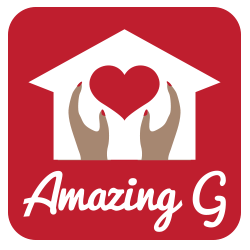Inspiring Hope, Building Futures
Our program incorporates proven therapeutic techniques, including cognitive-behavioral therapy (CBT), trauma-informed care, dialectical behavior therapy (DBT), and mindfulness practices.
By addressing the underlying issues contributing to adolescents’ struggles, such as negative thought patterns, trauma, or emotional dysregulation, evidence-based therapy can help prevent future mental health issues from developing. Teens learn to recognize early warning signs and develop proactive coping strategies to address challenges before they escalate.
Programs and Services
- Individual Therapy
- Family Therapy
- Art Therapy
- Medication Education
- Daily Various Groups
- Dedicated Teacher For Academic Continuity 3+ Days A Week *
- Equine Therapy *
* Available per payer’s source


Mindfulness-Based Cognitive Therapy (MBCT)
Cognitive therapy aims to help people rework the way they think by identifying underlying thoughts, beliefs, and emotions and modifying them in a positive and realistic way. The primary tenet of Cognitive Behavioral Therapy (CBT) is that negative and faulty patterns of thinking affects a person’s mood and behavior.
Mindfulness can be summed up as the practice and state of being aware of our thoughts, feelings, and emotions on a continuous basis (Greater Good Science Center, 2017). Mindfulness also contributes to an acceptance of the self as it is, without attaching value judgments to our thoughts.
Dialectical Behavior Therapy (DBT)
Dialectical Behavior Therapy is a form of cognitive based therapy that focuses on helping people increase their emotional and cognitive regulation by learning about the triggers that lead to reactive states. This aids in assessing which coping skills to apply in the sequence of events, thoughts, feelings, and behaviors to help avoid undesired reactions. DBT assumes that people are doing their best but lack the skills needed to succeed, or are influenced by positive reinforcement or negative reinforcement that interferes with their ability to function appropriately. This therapy is often used with those suffering from borderline personality disorder and depression.
FAQs
What kinds of disorders does Amazing G treat?
- Substance Use Disorder
- Attachment Disorder
- Anxiety
- Oppositional Defiance Disorder
- Depression
- PTSD/Trauma
- Self-Harm/ Suicidal Ideation
How soon can my teenager come to Amazing G for treatment?
We currently have a two month waiting list for intake. Our program is a five-bed boutique treatment facility. We give personalized care to each teenager that comes to our facility for care.
Does Amazing G accept insurance?
We currently accept American Indian Health Plan
How long does treatment take?
Treatment length depends on each resident. Minimum stay is 30 days. Residents may stay up to a year based on their own medical necessity.
Does Amazing G allow any family participation?
Amazing G requires family participation. We provide weekly family therapy with each resident as part of our program.
What services are included in the treatment program?
- Weekly Individual Therapy
- Weekly Family Therapy
- Daily Various Groups
- Daily Yoga/Meditation
- Dedicated In-house Teacher For Academic Continuity/Support 5 Days/Week
- Equestrian Therapy
- Art Therapy
